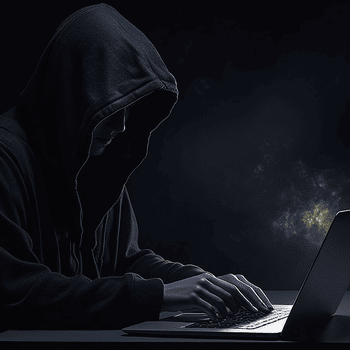
Phishing attacks have become a serious threat in today's digital era. A study from GetApp not only looks at the increasing frequency and impact of such attacks, but also takes a look at how well managers are prepared for this threat and what measures they are taking.
The focus of the study is on the experiences of managers in Germany who have experienced at least one phishing attack. When asked how worrying phishing attacks are, 23% of executives see serious risks. The majority (87%) of respondents believe that phishing attacks are becoming a serious threat to businesses as more companies go remote or hybrid. 76% of companies have anti-phishing software. 51% of managers said that regular backups are one of the most important things they can do to create a secure work environment. 23% of executives consider phishing attacks to be a serious threat.
Phishing risk increases
Phishing, a form of cyberattack, aims to deceive individuals through emails, text messages and phone calls by attackers posing as familiar senders. This often happens in a corporate context, where employees are used as gateways to fraudulently obtain account information or sensitive data.
The majority of executives, 81%, are familiar with the concept of phishing. However, the results show worrying trends: 88% of managers express concern as phishing attacks become increasingly sophisticated. 41% of those surveyed estimate an increase of 10 to 20% in the last three years, while 28% even suspect an increase of 21 to 30%. What's particularly significant is that 23% of executives view phishing attacks as a serious concern in their organizations.
One advantage for hackers is the home office, which has increased significantly in recent years. This presents an additional challenge as the way we work has changed and organizations are struggling to adapt and minimize security risks.
Phishing attacks in the home office
The prevalence of working from home has increased significantly since the start of the COVID-19 pandemic. According to our findings, 75% of executives surveyed are currently working from home, with 57% preferring a hybrid model. 18% work completely from home. At the same time, there has been an increase in cyber attacks on companies in recent years. This appears to be related to the increased implementation of home working, as confirmed by the managers interviewed. Working from home opens up security vulnerabilities that increase the risk of successful internet attacks such as phishing attacks. Overall, 87% of respondents believe that phishing attacks have become a serious threat to organizations since the increased adoption of remote or hybrid work models.
Three quarters use anti-phishing software
Anti-phishing software is designed to identify and filter malicious messages from actors who misleadingly pose as trustworthy sources or attempt to gain trust through social engineering. Users have the ability to proactively respond to this detection and take action by creating block and allow lists to strengthen their security. Employee training and the use of software programs are considered effective strategies for warding off phishing attacks. According to the executives surveyed, three quarters (76%) of companies already use anti-phishing software. Of these, 57% reported being successful in preventing phishing attacks regularly and 40% occasionally.
Additional safeguards
Phishing attacks aim to steal data, and attackers use different methods to achieve this goal. Cybercriminals like to deploy malware such as ransomware by tricking employees into clicking on links in phishing messages. When ransomware infiltrates the corporate network, either individual files or the entire operating system are blocked and a ransom is demanded for release. The potential impact is serious. In order to protect themselves against ransomware and not be vulnerable to blackmail, companies rely on backups. By regularly backing up data, they try to restore information that has been rendered unusable in the event of a ransomware attack and thus avoid paying a ransom. Backups are crucial for businesses. According to 51% of executives, regular backups and contingency plans are essential steps to minimize the impact of potential attacks and ensure a safe work environment. The majority (51%) also say their company backs up data more frequently than every three months. In addition to backups, there are many other factors that play a role in preventing phishing attacks. This includes, among other things, implementing current password guidelines and regular updates to company software.
More at GetApp.de
About GetApp
GetApp is a search and comparison portal that helps small and medium-sized businesses make the right software selection. GetApp empowers SMBs with the tailored, data-driven recommendations and insights they need to make their software purchasing decisions
